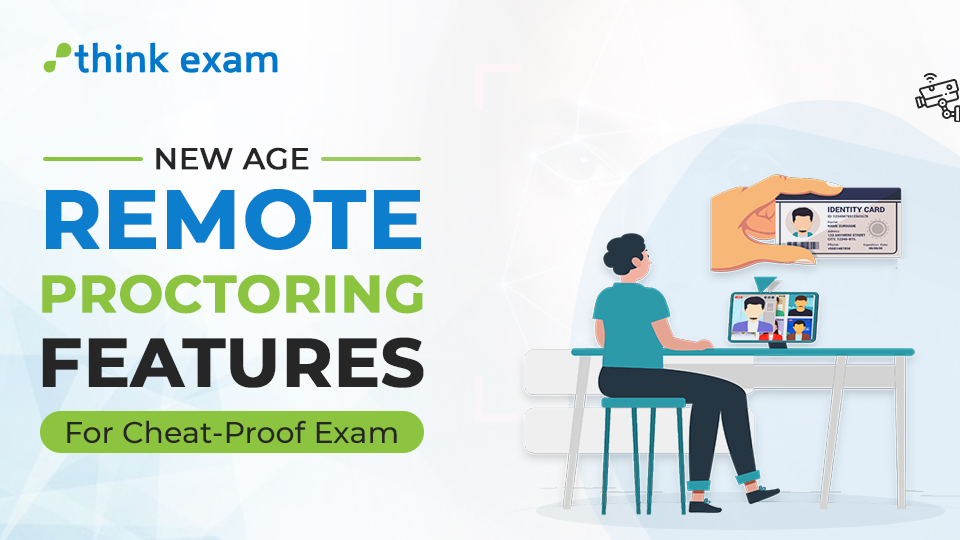Remote Proctoring has changed the conventional assessment landscape. It has come up with innovative technology and anti-cheat features for maintaining the authenticity of the exam. Academics worldwide are also witnessing the development and reviewing their examination structure. In rapid tech development, the online assessment platform has increased efficiency and synchronized AI with future requirements. Simultaneously, the demand for remotely proctored examinations has increased. Online exams with remote proctoring have become crucial for ensuring the security of exams. It is playing a critical role in digital adoption. Additionally, it is a cost-effective method for catching cheaters during exams.
What is an online proctored exam?
Online proctored exams are assessments that ensure exam authenticity and prevent cheating. According to the survey, 54% of the institutes are using remote proctoring, and it is predicted that shortly it will increase by great values. Also, it has made it easier for students to give exams from remote locations and become convenient for them.
Effectiveness of Online proctored exams
A new change is sceptical to accept at the beginning, which is why online exams face a lot of concerns. Schools and colleges were concerned about preventing cheating without any physical proctor. Modern technology has changed drastically so has proctor as well. There are many ways in which remote proctoring ensures maintaining the authenticity of exams. It would consist of student Id verification, safe exam browser, activity detection, and flagging can ensure authentic tests and candidates would remain intact. Learning centers have the authority to give full access to the student after the ID verification and what student can access. Students are aware that they are being monitored from the remote proctoring software and they refrain from cheating.
How does remote proctoring prevent students from cheating?
Therefore, few methods to prevent cheating during online exams with remote proctoring.
- Two-factor authentication and geotagging: The usual method in which students adopt for cheating is asking someone to give the test on their behalf, students usually are not successful in this. Remote proctoring consists of student ID authentication and face and voice recognition at the beginning of the exam. However, students must have an ID card for the authentication, and then it must match the face during the exam.
- Restricted Test Access: Sometimes, students log in with the correct ID and ask them to attempt the test on their behalf. Remote proctoring records the student’s activities which they don’t realize. New-age remote proctoring gives you limited access at once. A student can log in with a unique ID and code after ID verification. Candidates can log in again with a new ID and code.
- Browser Activity Tracking: Students usually browse the internet looking for answers during exams. Remote proctoring tracks the browsing activity of a student during the test and then records it for later evaluation. It will automatically raise a flag if the student is accessing any website or browser.








